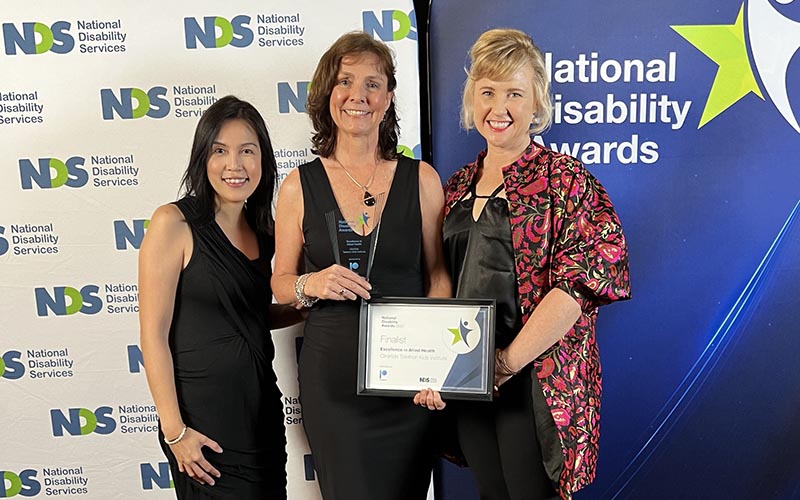Search

News & Events
Launch of National Autism GuidelineResearchers from The Kids Research Institute Australia, working with the Autism CRC, have led the development of the National Guideline for the Assessment and Diagnosis of Autism Spectrum Disorder in Australia which was launched today.

News & Events
The Kids Research Institute Australia’s CliniKids wins national disability awardCliniKids has won the Excellence in Allied Health category at the inaugural National Disability Awards, announced in Melbourne tonight.

News & Events
Autism Researcher a Finalist for Western Australian of the YearProfessor Andrew Whitehouse has been named a finalist in the 2023 Western Australian of the Year Awards for his work in transforming clinical support for autistic children in Australia.

News & Events
The Kids researchers named as finalists in 2023 Premier’s Science AwardsFive The Kids Research Institute Australia researchers working across diverse and highly impactful areas of child health research have been named as finalists for the 2023 Premier’s Science Awards.
Research
Community perspectives on the appropriateness and importance of support goals for young autistic childrenResearchers do not know much about what autistic adults, parents and professionals think about support goals for young autistic children. People's views of support goals might also be influenced by their beliefs about early support more generally. This survey involved 87 autistic adults, 159 parents of autistic children and 80 clinical professionals living in New Zealand and Australia.

News & Events
Autism researcher named 40 under 40 finalistAndrew Whitehouse has been listed in the WA Business News 40 under 40 awards recognising accomplished and dynamic young leaders in Western Australia.
Research
Improving the Journey Before, During and After Diagnosis of a Neurodevelopmental Condition: Suggestions from a Sample of Australian Consumers and ProfessionalsThe current study used a transdiagnostic approach to explore experiences of consumers and professionals on how the process of assessing and diagnosing neurodevelopmental conditions can be improved.
Research
Australian Clinicians’ Considerations When Choosing an Assessment of Functioning Tool for Children with Neurodevelopmental ConditionsIn the Australian disability context, the assessment of children with neurodevelopmental conditions’ functioning (across all domains) is of increasing importance, particularly since the introduction of the National Disability Insurance Scheme. Currently, there is wide variability across assessment of functioning practices, including the choice and use of published tools for assessment.
Research
Early markers of adult symptoms of depression and anxiety in the Raine StudyEarly intervention offers the potential to mitigate adult mental illness; however, trials spanning decades present significant challenges, necessitating predictive early markers useable in trial settings. We hypothesised that parent evaluation using the child behaviour checklist (CBCL) total problem score at age two years predicted adult depressive and anxious symptoms and explored other potential parent ratings.
Research
Caregiver broader autism phenotype does not moderate the effect of early caregiver-mediated support on infant language outcomesCaregiver-mediated supports in general have shown mixed evidence for enhancing language outcomes in infants at higher likelihood of autism. While caregivers play a substantial role in caregiver-mediated supports, little is known about whether caregivers' own subclinical autistic features - known as broader autism phenotype - may moderate infant language outcomes.
